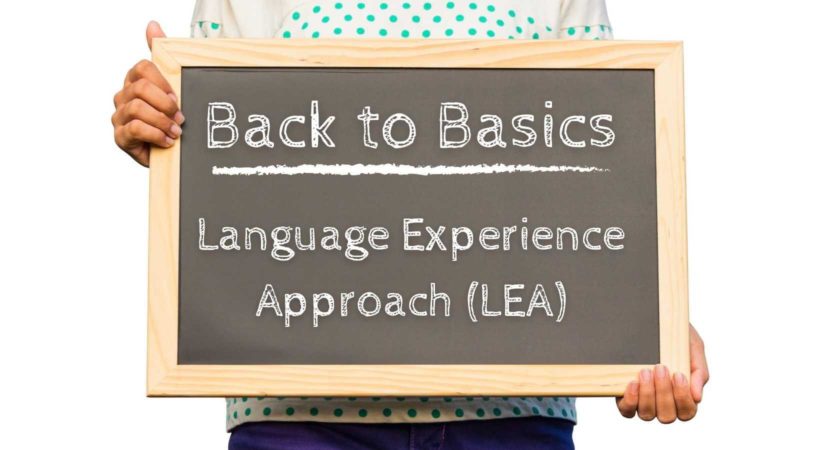
Back to Basics: Language Experience Approach
Welcome to our new Back to Basics series! In this series we will be exploring some of the foundational methods, practices and terminology for teaching reading. This series is for those new to the field of literacy, beginning tutors or those who would just like a refresher. This week we are discussing the Language Experience Approach.
A popular teaching strategy is the Language Experience Approach (LEA). This strategy is ideal for emergent and beginning readers because it uses concepts and words the learner is familiar with. Usually, learners can read what they have written more easily than what someone else has written. LEA can be used with either groups or individuals.
To begin, the teacher asks the student about an experience and writes down what the student says. Sometimes using a picture as a prompt is helpful. It’s a good idea to break large sentences down into smaller sentences. The teacher sounds out the words as they are writing. The teacher and student read through the text. The teacher provides just enough structure so that the student can read it without frustration. After the first reading, the student reads it again until they can read it fluently. Next, the teacher may choose to incorporate a mini phonics lesson using the text, or work on sequencing or vocabulary. The teacher should save the text so that the student can return to it and use it for practice. It’s a great exercise to both practice reading and develop fluency.
See the LEA in action:
Learn more about using the Language Experience Approach
- The Best Resources For Learning How To Use The Language Experience Approach
- A Fun, Experiential Approach to Strengthen Reading and Writing Skills
- Getting to the Rough Ground of Language and Literacy Learning Through the Language Experience Approach
- Introduction to the Language Experience Approach
- Literacy Improvement Series: Language Experience Approach
Related Blog Posts
Virtual Tutor Training Resources
Decoda is pleased to introduce the new adult literacy virtual tutor training resources!
Back to Basics: Pre-Reading
Welcome to our Back to Basics series! This week we are discussing comprehension strategy of pre-reading.
The Westcoast Reader – November 2020
The November issue of The Westcoast Reader is available now! This month’s Westcoast Reader includes articles about Indigenous veterans, comfort food, flu shots, planets and more. You can find the …
